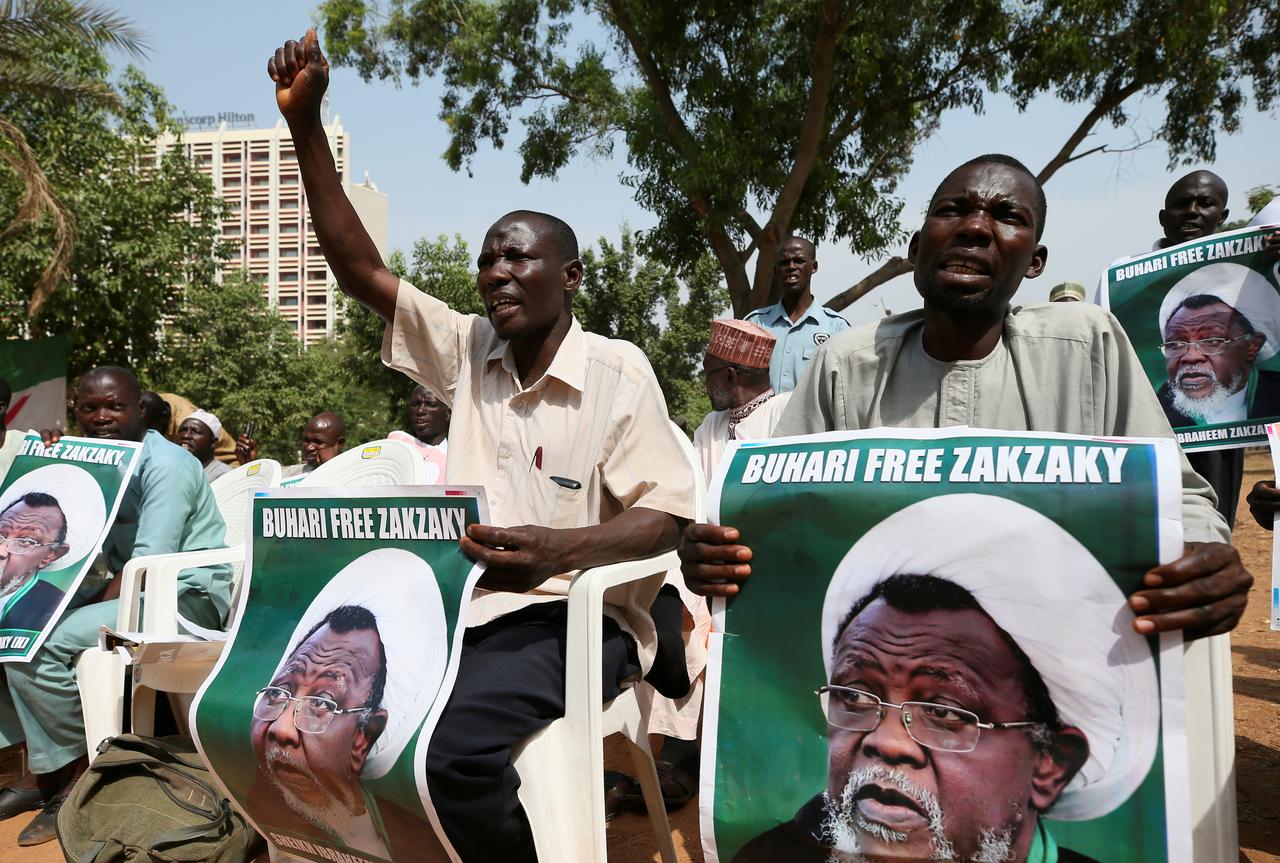The Nigerian government is fond of disobeying court orders with often damning consequences to follow. Abuja, the capital city of the country recently witnessed a violent protest by a Shiite group demanding the release of their leader, Sheikh Ibraheem El-Zakzaky whom a federal court had already granted bail but not released by the government. Whereas, continued disobedience of court orders is a violation of the rule of law and could lead to more violent protests by the aggrieved Shiites. The government should punish an offender only following a guilty verdict by a court and any accused should be presumed innocent if not, to protect the rule of law.
The El-Zakzaky Case
El-Zakzaky and his wife were arrested by the military on December 14, 2015, after a clash between his followers and officers of the Nigerian Army. At least 347 Shiites were killed with no army officer charged for the crime ever since. But, El-Zakzaky and his wife have remained in detention following the event. What could be the government’s excuse?
On December 2, 2016, the Federal High Court in Abuja ordered El-Zakzaky and his wife released from detention, citing the continued detention violates their rights and is against Section 35(1) of the constitution which provided “every person shall be entitled to his personal liberty and no person shall be deprived of such liberty save…in accordance with a procedure by law.”
Members of the Islamic Movement of Nigeria (IMN) protests in Abuja as they confronted military personnel at the Federal Secretariat.
The Dasuki Case
Former National Security Adviser (NSA), Sambo Dasuki is facing multiple federal charges including alleged diversion of $2.1 billion of state funds and the illegal possession of firearms. But again, despite the decisions of different courts granting Dasuki bail, the Nigerian government has refused to release him accordingly.
Also, the Economic Community of West African States (ECOWAS) court on October 4, 2016, granted the former NSA bail and ordered the Nigerian government to pay ₦15 million to the defendant in damages for his illegal and arbitrary detention. But in reaction to the order, the Attorney-General of the Federation and Minister of Justice, Abubakar Malami, said the government was not under compulsion to respect that court order. A few months later, on January 17, 2017, the Abuja Division of the Federal High Court reaffirmed previous court orders granting Dasuki bail but to no release.
Justice Ijeoma Ojukwu Federal High Court granted bail to the NSA, Colonel Sambo Dasuki in the sixth bail granted to the former NSA. He has been in DSS custody since December 29, 2015 —Oak TV.
This Government is Anti-Constitution
Although, the Nigerian government detained El-Zakzaky using the exemption provided in Section 35 (1)(c), that an individual can be detained “…upon reasonable suspicion of his having committed a criminal offense.” But El-Zakzaky’s continued detention is against the other provisions of the constitution.
Subsection 4 of the same section states that “any person who is arrested or detained in accordance with subsection (1)(c) of this section shall be brought before a court of law within a reasonable time…,” and according to subsection (5), “…the expression ‘a reasonable time’ means –
(a) in the case of an arrest or detention in any place where there is a court of competent jurisdiction within a radius of forty [40] kilometers, a period of one day; and
(b) in any other case, a period of two days…”
It took the government two years to get El-Zakzaky a hearing before the court.
Why Disobey the Court
Before the recent violent protest by the Shiite group, the Nigerian government had received several warnings not to frustrate the religious group to violence. The government, of course, turned deaf hears.
Interestingly, in the judgement delivered on December 2, 2016, by the Abuja Division of the Federal High Court, the leading judge had in that ruling described the Shiite’s relationship with the Nigerian government as “delicate and slippery,” stressing that the Government must not, through its action, demonize the Shiite group.
Also a human rights lawyer and Senior Advocate of Nigeria, Femi Falana, in his letter to the Nigerian government, advised releasing the detained Shiites leader, Ibrahim El-Zakzaky, and his wife to avoid the likelihood of a fresh insurgency. But they are all fighting a legal system that dwells on the presumption of guilt rather than innocence.
Instead of the unlawful detentions of suspects like El-Zakzaky and Dasuki, the government could seek swift punishment for suspected offenders by quickly arraigning them in court. This is the only way to save the constitution and the rule of law, not by playing arrogant.
Abdullah Tijani is a Writing Fellow at African Liberty and Local Coordinator at Students For Liberty. He is a law student at the Usmanu Danfodiyo University, Sokoto, Nigeria. He’s on Twitter @AbdullahAtijani.

